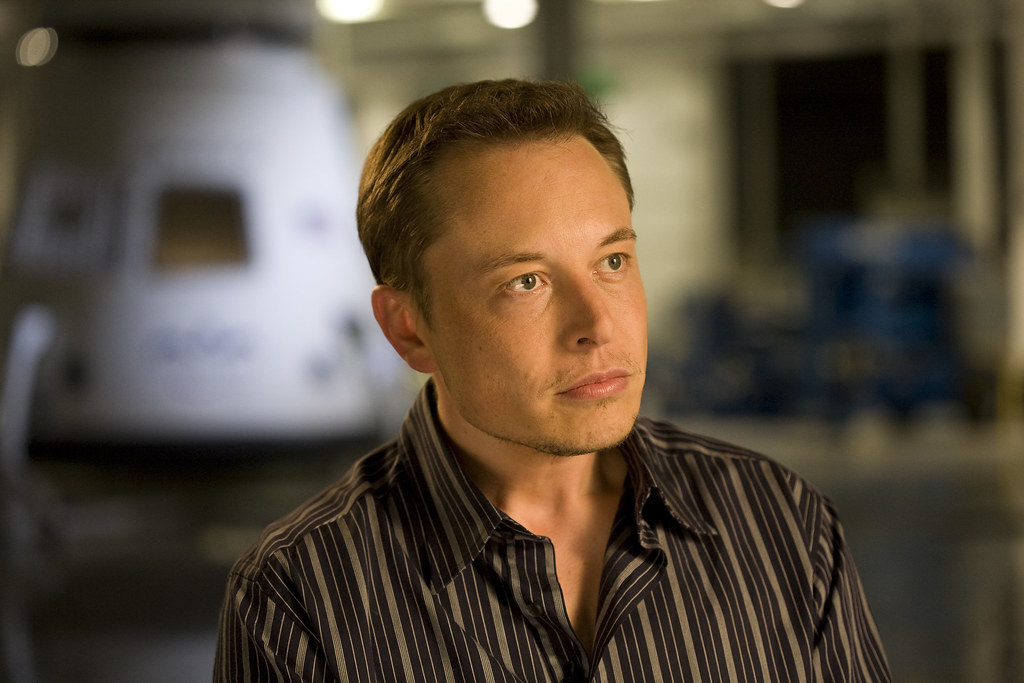 EMERGING TECH
EMERGING TECH
 EMERGING TECH
EMERGING TECH
 EMERGING TECH
EMERGING TECH
Tesla Inc. Chief Executive Officer Elon Musk was back to his usual bullish self today, claiming his company would have self-driving “robotaxis” with no human drivers up and running on U.S. roads within the next 12 months.
The announcement, made during a webcast presentation Monday, came as Musk unveiled a new microchip for self-driving vehicles made by Samsung Electronics Co. Ltd. that’s being fitted in all new Tesla cars. Musk said the chip will give Tesla’s cars a clear edge over its rivals and will ensure that the company’s enormous investment in autonomous vehicles will pay off.
The chip is dedicated to autonomous driving and therefore the industry’s best yet, he contended, since rival chips made by companies such as Nvidia Corp. are built for multiple purposes. Pete Bannon, Tesla’s head of Autopilot hardware, said the new chip was capable of seven times as many frames as Nvidia’s Xavier chip system, for example. Nvidia later told Reuters that the comparison was inaccurate, however.
Tesla switched over from Nvidia’s Drive platform to its own custom chip for the Model S and X about a month ago and for the Model 3 about 10 days ago, Musk said. Now that the chip was ready, Musk added, the focus would be on making improvements in Tesla’s software to allow vehicles to fully drive themselves. “A year from now we’ll have over a million cars with full self-driving, software, everything,” he insisted.
Despite Musk’s promises, his prediction that Tesla will have robotaxis ferrying passengers on American roads within the next year might just be a tad optimistic. The problem is that, even if Tesla does manage to get all the technology in place, the company would be unlikely to clear all of the regulatory hurdles needed to operate fully autonomous vehicles legally.
Some experts also questioned Musk’s claims, noting that numerous global car makers and other technology firms, including Alphabet Inc.’s Waymo and Uber Technologies Inc. have been working on self-driving cars for years. Those companies admit that it’s still likely to be several years before their systems are ready for prime time.
Daniel Ives, an analyst with Wedbush, told Reuters that Tesla’s investors were likely to be concerned by the practicality and financial implications of Musk’s robotaxi plans. He added that Waymo is “miles ahead of the autonomous competition” and that Tesla is unlikely to get there first.
Analyst Holger Mueller of Constellation Research Inc. was kinder, saying that the need for human augmentation is real because everyone knows people are the most dangerous component of driving.
“That needs a lot of computing, and computing needs lots of chip power,” Mueller said. “Musk’s new processor fits the functional architecture dependency, but whether or not this CPU generation gets us to that level remains to be seen.”
Patrick Moorhead, president and principal analyst at Moor Insights & Strategy, told SiliconANGLE that Tesla has shown zero evidence that its new chips perform better or are less expensive than merchant chips. “Tesla is struggling to make cars and investors should be asking why, with so many chips on the market, it needs to spend so much and even risk the safety of its drivers and passengers.”
Consumer Reports also cautioned against Musk’s claims, saying these the company had a tendency to “overpromise and underdeliver.” “Claims about [Tesla’s] driving automation systems and safety are not backed up by the data, and it seems today’s presentations had more to do with investors than consumers’ safety,” it said.
Tesla’s webcast came just two days before the company reports its latest quarterly earnings, when it’s expected to announce a loss because of fewer-than-expected deliveries of its latest Model 3 sedan.
Support our mission to keep content open and free by engaging with theCUBE community. Join theCUBE’s Alumni Trust Network, where technology leaders connect, share intelligence and create opportunities.
Founded by tech visionaries John Furrier and Dave Vellante, SiliconANGLE Media has built a dynamic ecosystem of industry-leading digital media brands that reach 15+ million elite tech professionals. Our new proprietary theCUBE AI Video Cloud is breaking ground in audience interaction, leveraging theCUBEai.com neural network to help technology companies make data-driven decisions and stay at the forefront of industry conversations.